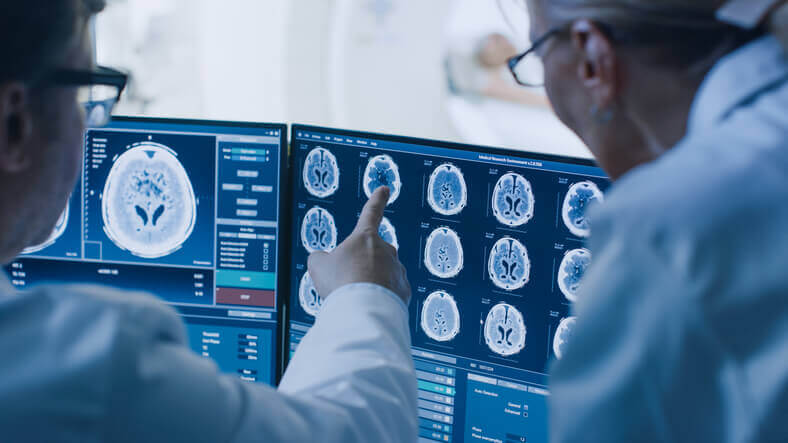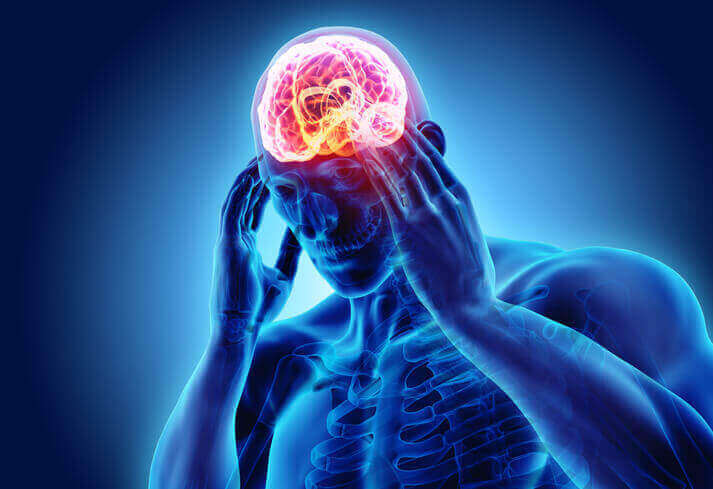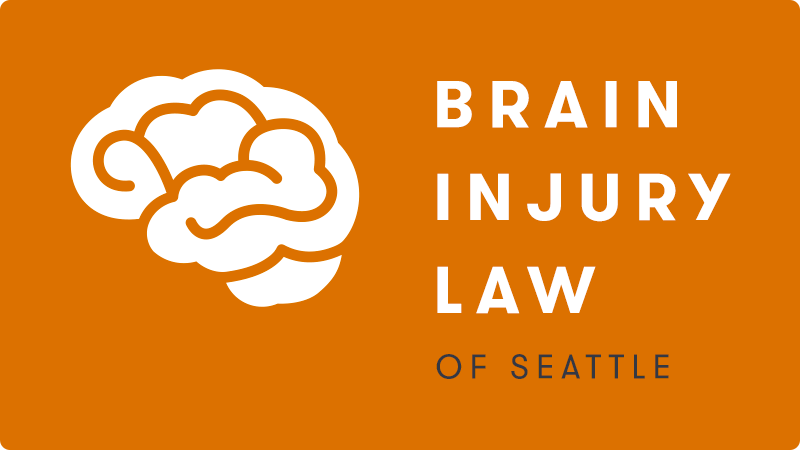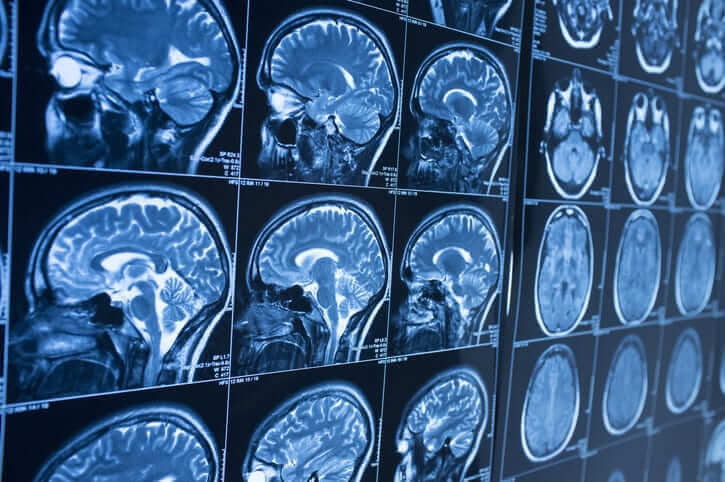If you recently sustained a concussion, you might wonder how long it’ll take to heal. Brain Injury Law of Seattle walks you through the six stages of concussion recovery to help you understand how your injury could affect your professional and personal life.
Page Contents
Understanding Concussions
A concussion is a type of traumatic brain injury caused by blunt force trauma to the head. A concussion might occur because of car accidents, hard falls, or heavy items impacting your skull. The injury may occur at work, at home, or during errand runs.
How long does a concussion take to heal? The time frame generally depends on how your doctor grades the injury:
- Mild to moderate headaches and breaks in concentration characterize a minor grade 0 concussion.
- Grade 1 involves the same symptoms as grade 0, alongside a detached or disconnected feeling.
- You’ll experience the same symptoms as the first two grades with grade 2. However, the cognitive consequences are more severe and include amnesia, confusion, tinnitus, and irritability.
- Grade 3 involves unconsciousness for less than a minute after the injury occurs.
- Grade 4 involves unconsciousness for more than a minute following the initial injury.
Concussion Treatment and Recovery
How long does it take to heal from a concussion? Speak with your doctor for a formal diagnosis and prognosis. Their medical advice will give you a more comprehensive understanding of how to recover from a concussion and what you should expect.
While your experience may diverge, you’ll find some helpful guidelines about the process below.
What Factors Affect Recovery?
The concussion grade typically determines its severity and how much it can affect your life going forward. Some other factors that influence your healing process include:
- Activity levels: Although physical activity can aid injury recovery, doing too much following a concussion can have significant consequences. Avoid strenuous tasks and take frequent breaks to aid the healing process.
- Eating habits: Prepare nutritionally balanced meals and avoid sugary or low-quality foods that may increase inflammation, prevent proper circulation, and hinder healing.
- Substance consumption: Stay away from alcohol, tobacco, and other addictive substances as they can increase even mild concussion recovery time.
- Hydration: Drinking enough water is extremely important when recovering from any injury, but especially concussions.
- Rest: Finally, plenty of sleep and breaks throughout the day may quicken healing. Cell regeneration generally occurs when you sleep.
How Long Does the Process Take?
A detailed, accurate timeline for how long it takes to recover from a concussion must come from your doctor. Mild to moderate concussions may take a week or less, while more severe injuries may take a month or two to heal.

What Are the Six Stages of Concussion Recovery?
Medical professionals typically recognize the following recovery outline. The length of each stage varies based on the seriousness of your injury and the recommended care.
1. Acute Injury
After your injury, you should visit a doctor immediately to determine whether you need observation or other medical assistance during the first stage of concussion recovery. This period is known as acute injury and can last up to 72 hours. Contact your employer and inform them you need to rest per your doctor’s orders.
2. Physical Rest
After your doctor examines you and explains if you’ll face major or minor concussion recovery time, they may send you back home to rest. Request that a friend or family member watch over you to observe your recovery and report any concerns to your doctor. This second stage involves physical rest and 48 hours of supervision.
3. Observation Period
Once you enter stage three, you are almost out of the water. However, you might still need some assistance and extra care as you enter the following days.
You may feel up to par and ready to resume your routine. However, you should continue taking it easy.
Your doctor will still schedule a follow-up appointment. Some people don’t display concussion symptoms until two or three days after their injury occurs. You might also develop post-concussion syndrome, which can cause distracting headaches and dizziness and may indicate other concerns.
4. Continued Rest
One of the more significant challenges of your concussion healing time is the rest required. Although you might feel perfectly fine and ready to tackle work and chores, you are still vulnerable to underlying issues. Your doctor may recommend continued rest and easy, lightweight work throughout the fourth stage of concussion recovery.
Concussion recovery time generally depends on having enough rest to support your brain’s healing process. When you sleep, your body regenerates damaged, malformed, or expired tissue cells. Concussions injure brain tissues that must heal during your sleep cycles for you to function normally again.
5. Concussion Recovery and Rehabilitation
How long does it take to recover from a concussion? The answer depends on the severity. Severe concussions may require rehab and therapy services.
These services are helpful to people who suffer from long-term symptoms or pain. Some symptoms that may occur after your injury include:
- Panic, anxiety, and depression
- Struggling to make sound decisions
- Disruptions in critical thinking
- Degraded sleep quality
6. Transitioning to Normal Activities
The last of the six stages of concussion recovery involves slowly returning to your routine. Once you’ve undergone observation and rehabilitation, you may see symptom improvements. You can then integrate parts of your old routine into daily life.

What Are Some Extra Steps I Can Take To Speed Up My Recovery?
You might shorten how long it takes to recover from a concussion by:
- Drinking plenty of water. Strong or repeated impacts can cause dehydration. Be aware of your body’s needs and quench your thirst more often.
- Sleeping eight or more hours a night. Some people believe you should avoid sleep after a concussion. However, sleep is integral to healing the body and mind. Do everything necessary to enjoy deep, REM sleep nightly.
- Limiting your physical movement. Avoid physical activities until your doctor gives you clearance. When you start moving again, limit your movement to gentle walks, stretching, and similar routines.
- Eating whole foods with anti-inflammatory properties. Highly processed foods can trigger inflammatory responses. Add anti-inflammatory whole foods to each meal to decrease pain and heal faster.
Seek Care and Rehabilitation From Professionals
You should always visit a doctor after a forceful impact on your head. Concussion symptoms can lie dormant until you least expect them. Visit a doctor to document your condition and craft a comprehensive healing strategy.
Related Article
How Long Does a Brain Injury Claim Take
Contact a Brain Injury Lawyer in Seattle for Legal Support
After you visit your primary care provider, reach out to Brain Injury Law of Seattle to pursue charges. The six stages of concussion recovery aren’t always as simple as the outline. You may need coverage for lost wages and medical bills. Our attorneys can help.
Related Articles






